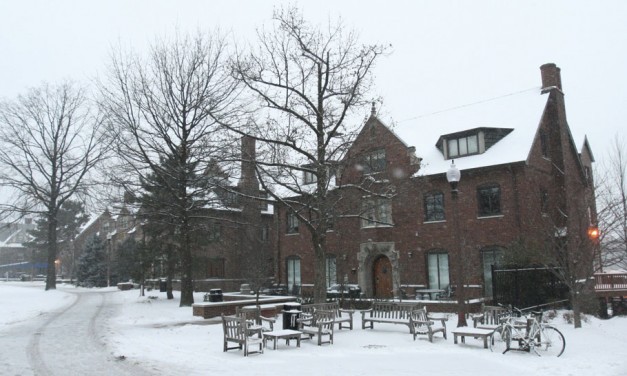Campus Events | News
Sigma Alpha Mu investigation continues
But a rocky decade for what was one of Washington University’s oldest fraternities led the University to withdraw its recognition of the organization and the national headquarters to revoke its charter earlier this summer.
The decision followed allegations of drug abuse and hazing, according to a letter sent from the national fraternity to members of the chapter and the University.
Including the two-year suspension issued in 1999, it was the third time in 13 years for the University to discipline SAM.
Six years after the two-year suspension for alleged hazing, SAM was again kicked off campus after a Washington University Police Department drug bust. The group was able to continue without its house on Fraternity Row until this June.
University officials said that the choice to withdraw SAM’s recognition was unrelated to previous disciplining, despite the similarity of the allegations.
“Unfortunately, they may have had not enough time to change some of the cultural aspects of their chapter,” David Wallace, coordinator for Greek Housing, said.
The University’s chapter of SAM was chartered in 1919, making it one of Sigma Alpha Mu’s oldest chapters—its 20th of more than 140 chapters across the United States—and one of the first Greek organizations at Washington University.
“It has a very long history of extensive success,” Lee Manders, executive director of Sigma Alpha Mu, said. “Closing the chapter was an unfortunate thing but the right thing to do.”
As of Friday, Aug. 24, Washington University Chief of Police Don Strom said that the investigation of the fraternity’s activities remains underway, and therefore would not enumerate the specific allegations against the fraternity.
But according to the letter Manders sent to the fraternity and Washington University officials and forwarded to Student Life, the University’s investigation of the Phi chapter of Sigma Alpha Mu began last December.
Student Life reported earlier this summer that the letter said WUPD had been investigating several members for alleged drug use and drug dealing before uncovering additional evidence that the fraternity had engaged in hazing and group drug use.
The letter also said that the University informed the fraternity’s national directors—also known as the Octagon—about the investigation and alleged hazing in May. The Octagon then approached fraternity members, asking for members to confirm or deny the allegations, but fraternity members chose not to respond.
Junior Sam Schauer, who was the leader, or acting “Prior,” of the Phi chapter when the national fraternity learned of WUPD’s investigation into the fraternity, declined to say whether the fraternity hazed new members, except to say that the “pledge education program” did not involve drug use.
The letter, addressed July 2, preceded the University’s decision to withdraw recognition of the chapter as of July 6.
As a result of losing its charter and University recognition, the chapter will no longer be able to represent itself as part of Sigma Alpha Mu, conduct meetings or hold social or philanthropic events. All individual members, however, were granted Special Alumni Status, meaning they are still members of the organization.
Schauer said that his main confusion over the situation was how individual investigations of fraternity members came to incriminate the organization as a whole.
“This isn’t something every brother was involved in,” Schauer said. “This decision wasn’t made because there was an assessment of an overall lack of ability in the brotherhood. It just seems there’s a total disregard if not for everyone there, at least for the members who haven’t been contacted and who weren’t involved in whatever the alleged charges are. It just shows us there really isn’t a level of mutual respect.”
Tamara King, head of judicial programs, declined to comment on the University hazing or drug policies and would not confirm that her office had spoken with any fraternity members. Sigma Alpha Mu’s national office confirmed the contents of the letter but declined additional comment.
Senior and president of Washington University’s Interfraternity Council, Eric Fischer, said that the only information he could provide on the situation was that the fraternity had made “multiple violations” to the student code of conduct.
He said that the decisions to disband and stop recognizing the fraternity are the worst things that can happen to a Greek organization—even compared to disciplining the Phi chapter has received in the past.
While the letter from Sigma Alpha Mu’s executive director suggested that the University’s suspension of the chapter is projected to last at least four years, Michael Hayes, director of Greek Life, said earlier this summer that his office had not begun considering the fraternity’s possible return to campus.
“At some point in the future, there may be an opportunity for them to come back but that’s to be determined,” Hayes said.
At this point, Schauer said that fraternity members are just hoping to move forward.
“I think obviously we’re all very saddened by the fact that we will no longer have any sort of formal representation on campus, but it doesn’t destroy friendships or get rid of the memories that we had when we were part of the organization. Obviously the hardest part of moving forward is trying to deal with the logistics of everything,” Schauer said.
Note: Sam Schauer is the current Design Chief for Student Life. He was not a member of Student Life at the time his quotes were given.

